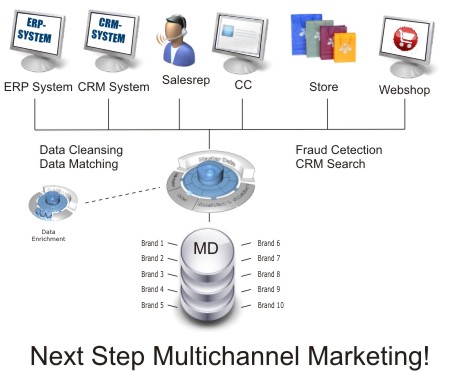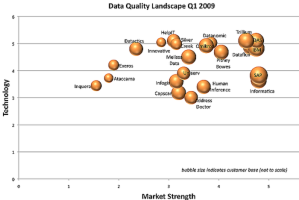[tweetmeme source=”jeric40” http:// optimizeyourdataquality.wordpress.com]
Some customers are worried about the complexity of the data quality challenges. Understandable, since they can hear about a lot of projects that has failed. There are several reasons for this. An important factor is using right tool. If you want to get a nut to loosen from a bolt, you might use several tools.
Some use pliers, almost a sure failure. Others use an adjustable wrench. This might work, but if it is not tight enough, there is a big possibility that the nut will be rounded and suddenly will become very hard to get off. It will create a lot of extra work, and the bolt cannot be reused. If you use the correct wrench, the nut will come off, and it can be reused.
Let me transfer this to the Data Quality world. Way back I was approached by a prospect. They had a MDM project had hit the wall. They had spent over a year so far. They had used all the products from the Microsoft Enterprise Supermarket, and built some elaborate business rules together with external consultants. In this way they had found about 23% of duplicates. Their problem was that they could see there were more, but they could not catch them. They sent the data over, and a couple of days later we could send the results back, with an additional 27% of duplicates on the cleansed data. This shows me the power of specialized tools.
There are some great software supermarkets out there. These often offer excellent and good products. Customers often want as few vendors as possible, and one stop shopping if possible. You will get special competence on this vendor’s product, and can be cost efficient. One challenge with this strategy is that you might miss out on a special product that can be critical for your success. An example: Gartner estimates that 50% of CRM/ERP installations fail, due to poor data quality and integration.
Data might be the most important asset in your company; don’t you want the best available product to handle this precious asset? If I had the king over for dinner, and I knew that it was a 50% chance of failure if I used the meat from the supermarket, I would definitely go to the best butcher in town. 90% of the purchase would be in the Supermarket and the lat 10 from specialized vendor. One thing does not exclude the other.
These challenges is not only in the Data Quality field, but is as much present in the e-Commerce world.
Filed under: General | Tagged: CRM, Data Quality, Gartner, Supermarket | 3 Comments »










